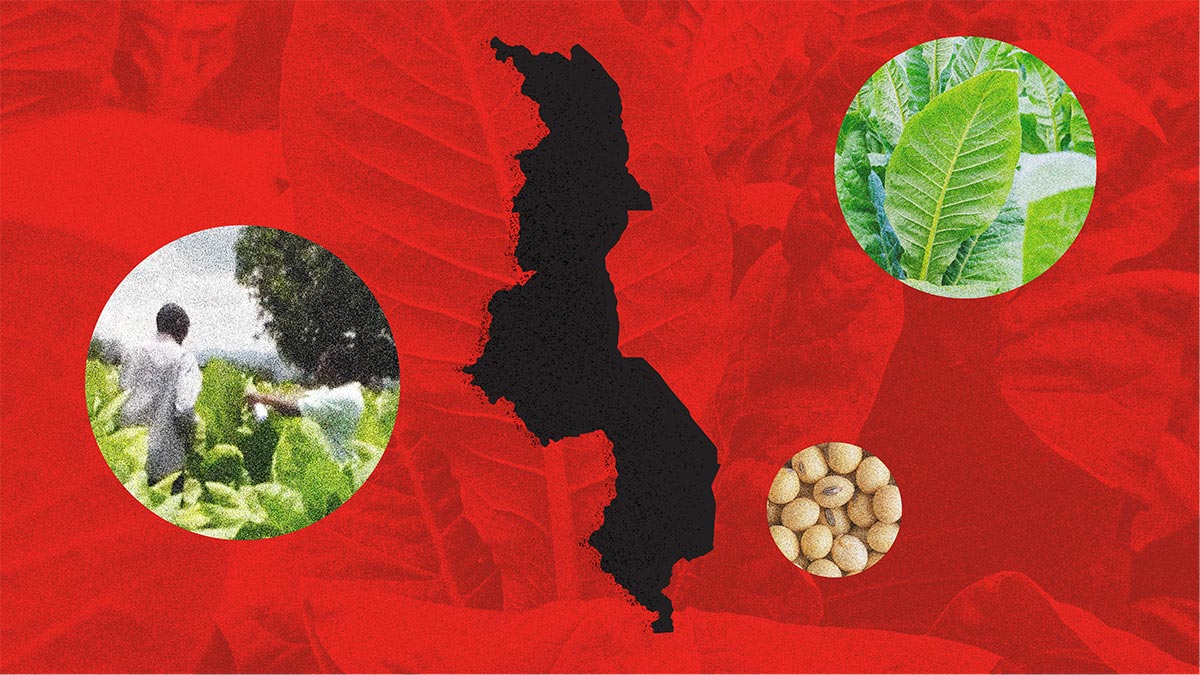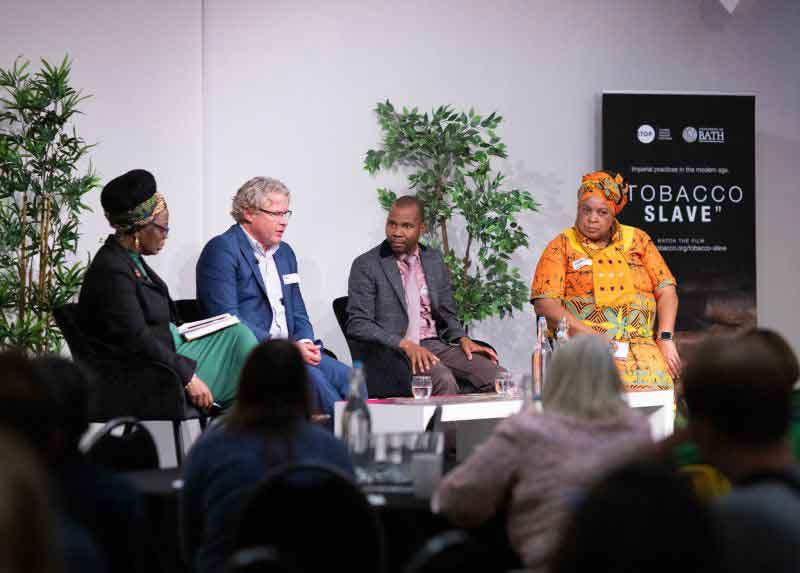- Resources
- News
-
-
Get Email Updates
Sign up for STOP's emails and never miss an update on our latest work and the tobacco industry's activity.
-
Get Funding
Ready to tackle industry interference? You could be eligible for a grant.
-
Share a Tip
Do you have information on tobacco industry misconduct in your country? Let us know.
-
Get Email Updates
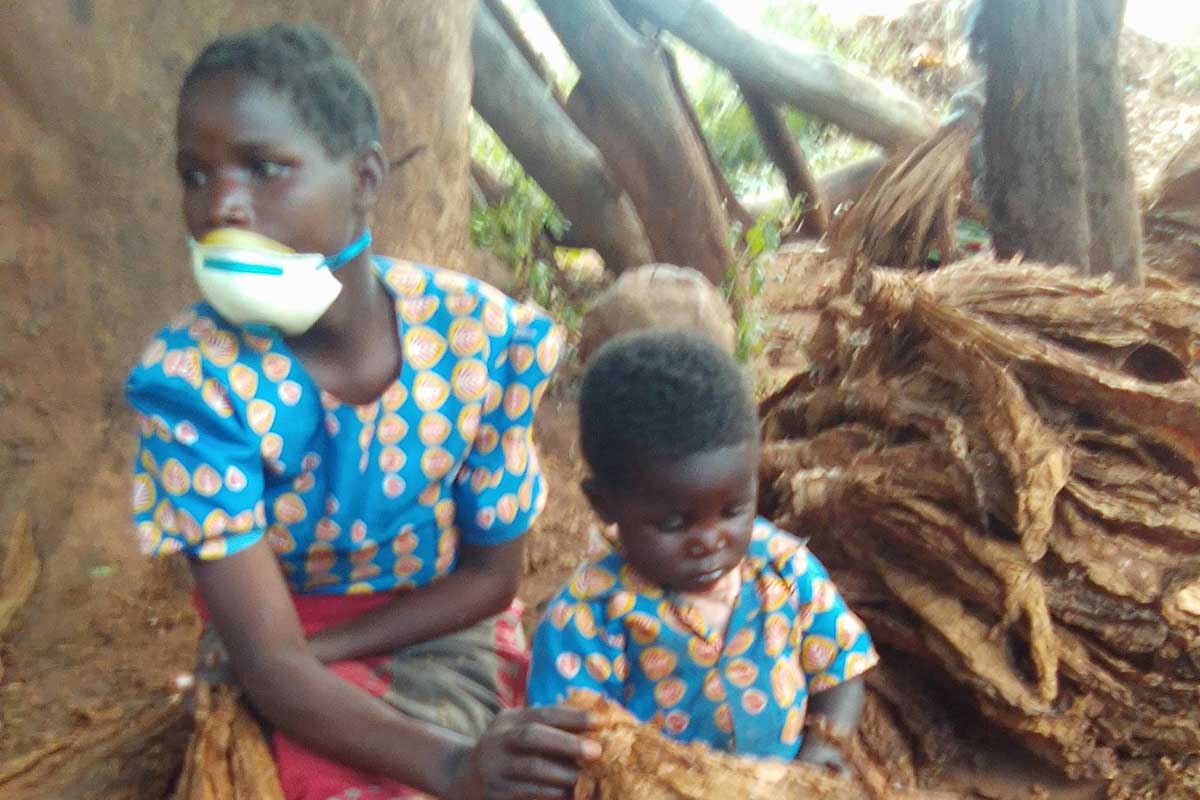
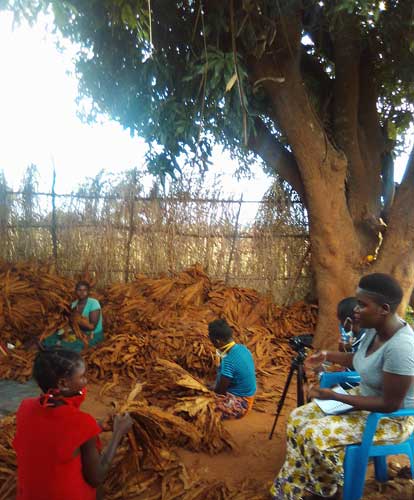 Concerning photos from a tobacco farm in Zambia show only some workers wearing masks, while others wear them incorrectly—or not at all. The farm, which is in Chief Chanje’s chiefdom, supplies tobacco to Japan Tobacco International (JTI), according to Brenda Chitindi, Executive Director of the Tobacco-Free Association of Zambia.
Concerning photos from a tobacco farm in Zambia show only some workers wearing masks, while others wear them incorrectly—or not at all. The farm, which is in Chief Chanje’s chiefdom, supplies tobacco to Japan Tobacco International (JTI), according to Brenda Chitindi, Executive Director of the Tobacco-Free Association of Zambia.
While the Zambian government ordered restrictions on mass gatherings, closed schools, prohibited non-essential travel and implemented lockdowns in particular districts, Chitindi says tobacco farms have remained fully operational throughout the pandemic.
Chitindi visited this farm on April 28. Several weeks into the COVID-19 pandemic, the country had instituted a physical distancing policy of at least one meter (about three feet) between people, and mandatory mask-wearing.
Why are we seeing improper mask usage in these photos? Sometimes, Chitindi says, there aren’t enough supplies. Even though the government requires mask-wearing outside of the home, Chitindi says this tobacco farmer was not able to provide masks for all his employees.
Other times, the work the women do makes wearing a mask inconvenient: Chitindi explains that the presence of tobacco leaf dust can make it harder to breathe while wearing a mask. Workers also haven’t been guided on the proper way to wear a mask, she adds.
The photos reveal another serious concern: Young children are being directly exposed to tobacco leaves, posing known health risks like Green Tobacco Sickness and exposure to pesticides which can result in tumors, blood disorders and neurological diseases. In one photo, a child plays with tobacco leaves while his mother works.
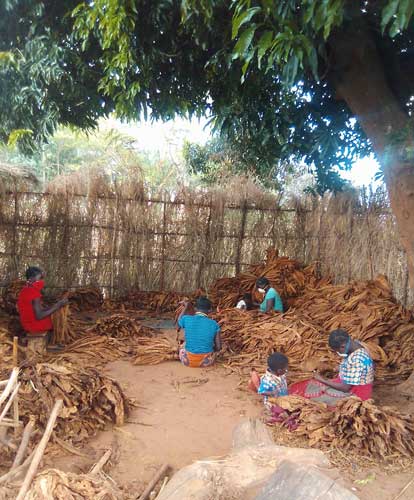 This smallholder farm is just one of an estimated 10,000-12,000 in Zambia that grow tobacco as a cash crop. By not managing their own farms, tobacco companies can claim to be unaware of dangerous or illegal labor practices within their own supply chain. With this setup, tobacco companies can skirt the blame when legal or ethical concerns arise.
This smallholder farm is just one of an estimated 10,000-12,000 in Zambia that grow tobacco as a cash crop. By not managing their own farms, tobacco companies can claim to be unaware of dangerous or illegal labor practices within their own supply chain. With this setup, tobacco companies can skirt the blame when legal or ethical concerns arise.
While JTI says it provides some oversight to directly contracted farms, these photos prove it’s not enough. On its website, the tobacco company touts its Agricultural Labor Practices (ALP), which include “tackling child labor, respect for the rights of workers, and ensuring workplace health and safety.” But in 2019, the company’s ALP covered less than 60% of directly contracted growers.
JTI is trying to paint itself as part of the solution to the COVID-19 pandemic with so-called corporate social responsibility acts that support other parts of its supply chain, like donations to support independent retailers in the UK. But it seems to have forgotten about the women and children who risk their health to fuel the company’s profits in the midst of a pandemic.
Are you seeing tobacco industry misconduct or tobacco worker safety issues related to COVID-19? Report it here.
